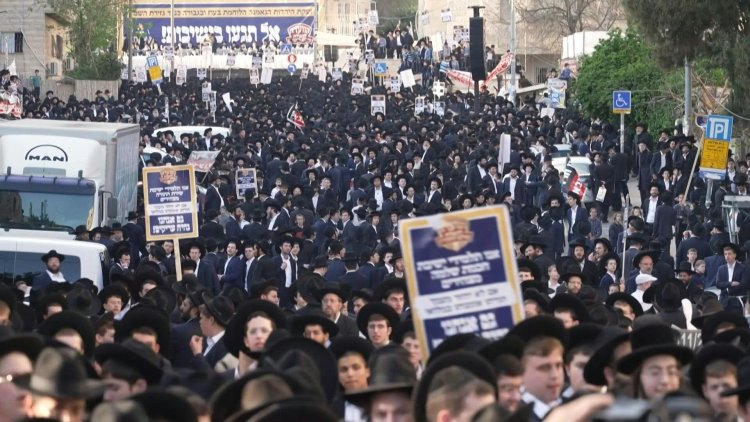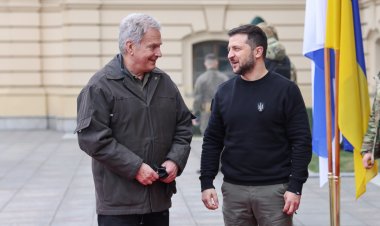Ultra-Orthodox Jews Protest Draft in Jerusalem

Thousands of ultra-Orthodox Jews demonstrate in Jerusalem against being drafted to the army.
Israel's ruling coalition has been scrambling to find a compromise on drafting ultra-Orthodox men following an order last month from the country's top court, effectively striking down the decades-old exemption as of April 1.
Interior Minister Moshe Arbel, of ultra-Orthodox party Shas, said that "the reality after October 7 is that the ultra-Orthodox community must understand that it is no longer possible to continue like this."
With the country at war for more than six months since the unprecedented Hamas attack, Arbel told a podcast "there is no moral possibility" for students of Jewish seminaries, or yeshivas, to avoid the draft.
Military service is compulsory for most Israelis, but ultra-Orthodox men studying religion full-time had been largely exempt due to a policy that dates to the state's early years.
While around the time of Israel's establishment in 1948 it had only affected around 400 yeshiva students, the measure today concerns around 66,000 ultra-Orthodox men aged between 18 and 26.
The issue has long divided Israeli society, with parts of it demanding that the ultra-Orthodox community contribute to the country's security like others.
The court order, following years of delays, means the army can now call up ultra-Orthodox men for service, but that has yet to happen. Religious women are generally not subject to conscription orders.
Shas, one of two ultra-Orthodox parties in Prime Minister Benjamin Netanyahu's government, distanced itself from Arbel's remarks as it hoped to agree a compromise on the thorny issue with other factions.
Thousands of ultra-Orthodox Jews rallied in Jerusalem to protest the plans to remove the exemption, which according to signs carried by the demonstrators would lead to "the destruction of yeshivas".
Israeli men are recruited for 32 months, and women for two years.















